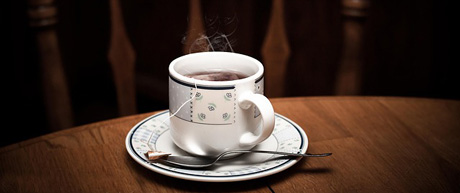 LONDON – This is not your grandmother’s cup of tea. While tea is the world’s most popular hot drink, it has long lagged behind coffee in terms of infiltrating everyday culture, the Wall Street Journal reports.
LONDON – This is not your grandmother’s cup of tea. While tea is the world’s most popular hot drink, it has long lagged behind coffee in terms of infiltrating everyday culture, the Wall Street Journal reports.
Today, new tea drinks and marketing campaigns are part of a plan by tea makers to increase tea’s profile—and the price people are willing to pay for a cup. “Our mission is to create a modern-day tea culture,” said Charlotta Oldham, tea category manager for Europe, the Middle East, and Africa for Starbucks Corp. “I totally believe tea can be as cool as coffee.”
By volume, tea outranks coffee, with the world consuming 1.7 trillion cups of tea in 2016, way above the 984 billion cups of coffee, according to Euromonitor. More Americans are drinking tea, with the number of cups of tea rising 6.5% between 2012 and 2016, and sales of tea jumped 9.9% as well. However, coffee still commands more dollars, raking in $79.3 billion in retail value in 2016, compared with a mere $42.7 billion for tea. Coffee has been pushed along by specialty coffeeshops, although now it appears growth might be settling down.
Now, companies like Might Leaf Tea Co. are betting that by pushing tea’s healthy claims, updated flavors and more sophisticated tea bags will make people willing to shell out more for a cup of tea. TeaPigs sells chocolate flake, and licorice and peppermint tea bags, while Unilever PLC debuted green and herbal teas under its Lipton brand. Even Walmart stocks higher priced teas that “Soothe Your Tummy.”
Cafes also sell more specialty teas, like chai lattes and match green tea latte. Starbucks now sells iced teas, like pineapple black, peach white and strawberry green, which are flavored with botanical blends and fruit. Tea companies have also realized that staff need training on how to brew a proper cup of tea, and when to add milk and sweetener too.
“They need to develop the snob appeal and connoisseurship and make it like wine,” said Mark Pendergrast, author of “Uncommon Grounds: The History of Coffee and How It Transformed Our World.” “Tea has a hugely long, fascinating history, and that’s something they need to highlight.”